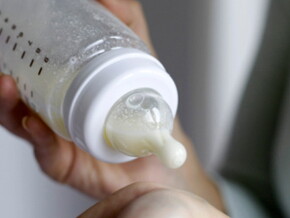
Although their names are similar (they just have a letter difference), the properties and characteristics of probiotics and prebiotics are very different. If you are curious about the difference between prebiotics and probiotics, and their benefits, keep reading to learn.
What’s the difference a between a probiotic and a prebiotic?
Probiotics
Probiotics are good microbes and live bacteria which, when they are consumed in enough quantity, may provide a health benefit to us. The health benefits are different between each type of probiotic.
Prebiotics
Different than probiotics, prebiotics are carbohydrates – or dietary fibres - that cannot be digested by the human body and that ferment in the gut and feed the good bacteria there. They act as the food source for probiotics.
Both probiotics and prebiotics work together to support a healthy digestive system.
Where are probiotics found?
Certain foods have natural or added probiotics, such as:
- Yogurt
- Kefir
There are also probiotic supplements available for children that may come in drop or powder formats. As well, certain nutritional toddler drinks are supplemented with probiotics.
It’s important to note that probiotics have a benefit when you consume them, but they do not become a permanent part of the good bacteria in your gut.
Where are prebiotics found?
To help improve the number and variety of bacteria in the gut, ensure that your child is eating prebiotic-rich foods.
Foods rich in prebiotics include:
- Asparagus
- Bananas
- Oatmeal
- Legumes
There are also supplements available for children that contain prebiotics.
Are there foods that have both probiotics and prebiotics?
The types of foods that contain probiotics and prebiotics are very different. There are some examples of yogurt products, toddler drinks and baby cereals that contain both pro- and prebiotics. Ask your health care provider if you have questions about which product is right for your child.
What are their benefits?
Benefits of probiotics
Probiotics have been shown to provide benefits for infants and children such as:
- Immune support. Certain probiotics are beneficial for supporting the development of baby’s healthy microbiota and in supporting their immune function. Gerber® Supplements for Baby Immune Support contains probiotic B. lactis for immune support in babies and toddlers.
- Diarrhea relief. Certain strains of probiotics can help manage certain types of diarrhea. Gerber® Supplements for Baby Diarrhea Relief contains probiotic LGG for diarrhea relief in babies.
- Decreased risk of atopic dermatitis (eczema). Some probiotics may help manage certain conditions, such as eczema in babies with allergies.
Benefits of prebiotics
Giving your child a variety of prebiotic-rich foods can help them maintain a healthy balance of good bacteria that support their health and well-being. Some benefits of prebiotics for babies and children include:
- Supporting digestive health. Prebiotics also promote the growth of healthy bacteria in the gut which helps support digestive health
- Relieving constipation. Supplements like Gerber® Supplements for Baby Constipation Relief contain prebiotics GOS & FOS that help relieve constipation in babies and promote the growth of good bacteria.
Types of probiotics ideal for babies and children
- L.rhamnosus GG (LGG), which is a probiotic clinically shown to help manage certain types of diarrhea
- B.lactis, a probiotic that is clinically shown to support a healthy gut microbiota and the developing immune system
Some baby cereals and toddler drinks, such as NIDO, contain probiotic B. lactis to support your little one's digestive health and developing immune system. Talk to your doctor if you have questions about which probiotics are right for your child.
Types of prebiotics ideal for babies and children
- Human Milk Oligosaccharides (HMOs), which are prebiotics naturally found in breast milk. HMOs play an important role in supporting the growth of healthy bacteria in baby's gut
- Galactooligosaccharides (GOS), prebiotics that promote beneficial bifidobacteria growth in the gut
- Fructooligosaccharides (FOS), prebiotics that stimulates the growth of beneficial bacteria in the gut
- Inulin, a prebiotic fibre found in some fruits and vegetables
Overall, prebiotics and probiotics are the dream team for gut health. They go hand in hand, working together to keep your child’s tummy happy and thriving. By introducing foods with prebiotics and probiotics into your child’s diet, you're setting them up for good digestive health and supporting their developing immune system.




















